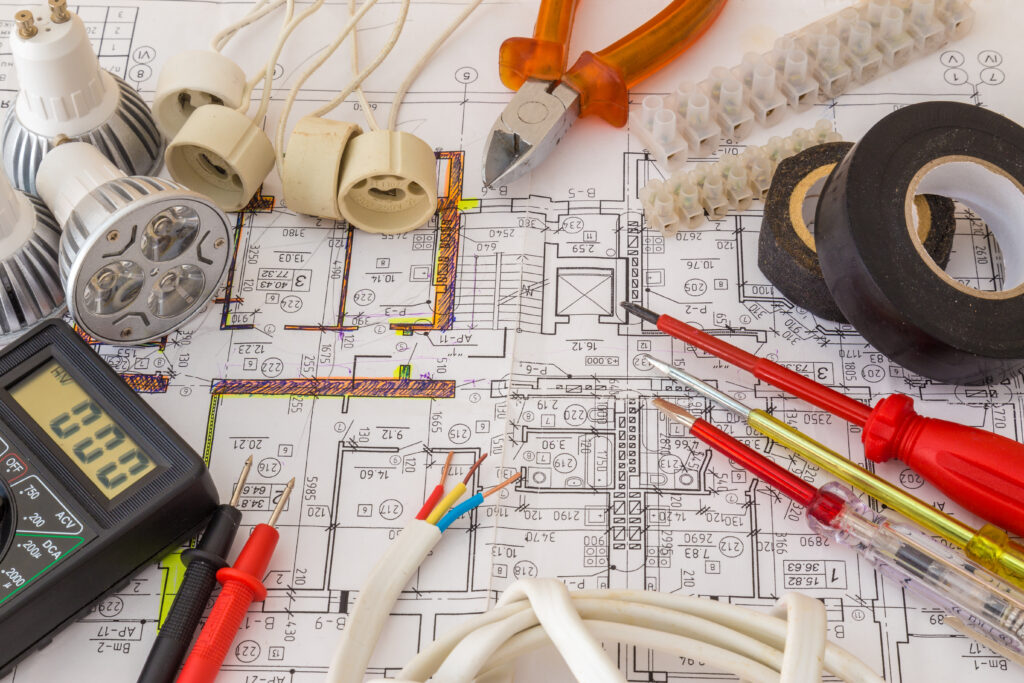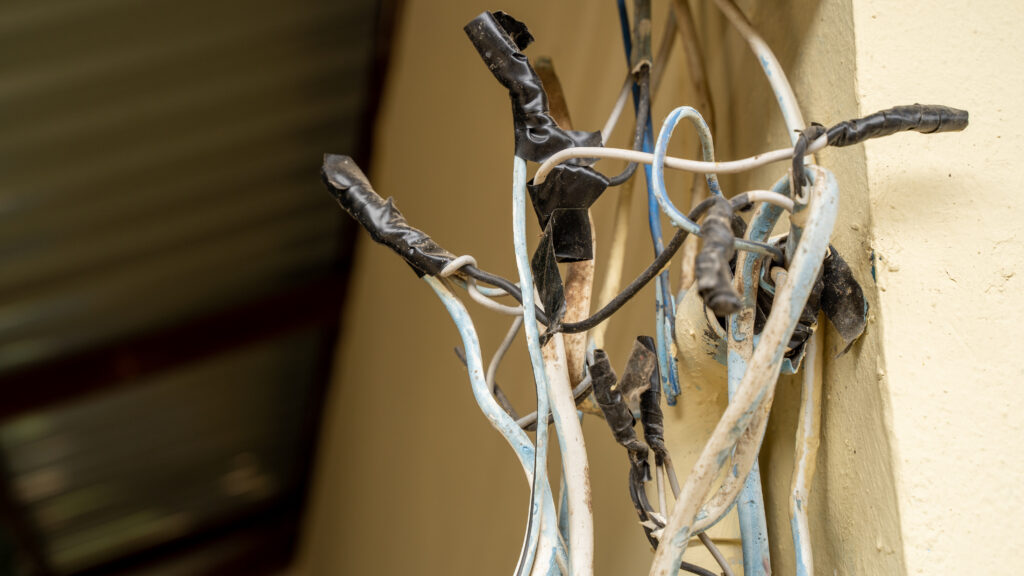Guide to Understanding Electrical Wiring in Your Home
 When you consider that less than 100 years ago, only half of houses in the U.S. had electricity, it’s easy to see we’ve come a long way. Our modern society depends on electricity to function and keep our world revolving. We rely on electricity for everything from just providing light to powering our appliances and air conditioning to keeping our infrastructure going. Where would we be without it?
When you consider that less than 100 years ago, only half of houses in the U.S. had electricity, it’s easy to see we’ve come a long way. Our modern society depends on electricity to function and keep our world revolving. We rely on electricity for everything from just providing light to powering our appliances and air conditioning to keeping our infrastructure going. Where would we be without it?
Electrical wiring is at the core of our lives, and it’s vital for homeowners to prioritize any repairs and maintenance to have a safe, properly functioning electrical system.
Many laypeople don’t understand electrical wiring or how it all comes together to power our world. This short guide to electrical wiring might give you some insight to help you maximize the benefits of your home’s electrical system and increase its efficiency.
Electricity 101
Electricity enters your home through the electric company’s power meter, which then must pass through a master circuit breaker, then your home’s circuit breaker.
From your home’s breaker box, electricity flows through many circuits to various parts of your home. The electrical currents initially pass through individual circuits that act as a safety measure and keep your home’s electrical system from being overloaded.
Most of your home’s electrical system operates from 120 volts of power; an exception is a major appliance such as your washing machine, which runs off 240 volts.
A home’s electrical wiring is made from different types and sizes of wires, usually a non-metal cable, conduit wiring, and Bx cable. Wiring made from heavier, thicker wires can carry more electrical current without overheating.
Circuit breakers and electrical wires work together and must have corresponding sizes meant for the other. An example is that a 14/2 gauge wire is rated to 15 amps maximum, and as such, can’t be used with circuit breakers that have more than 15 amps.
Local and state building codes dictate much of the wiring specs for residential homes. It’s instrumental to leave all electrical wiring matters to an experienced, licensed electrician familiar with wiring on a technical level and understands the regulations surrounding them.
Maintenance of Electrical Wiring in Newer Homes
New home wiring doesn’t typically have the same issues that older homes have. Maintaining the electrical system of newer homes and making needed repairs are still essential to maintain its integrity.
Today’s homeowners are adding more outlets and increasing electrical capacity than our forebearers did. Houston’s savviest residents are also integrating smart home solutions and making upgrades, such as replacing their electrical panel in favor of a unit that provides more power to cater to a technological lifestyle.
It’s also important to remain mindful that regulations in the electrical industry are continually evolving. A yearly electrical inspection can help you stay up-to-date and become aware of needed repairs and upgrades to have safe and effective wiring that will help your home operate more efficiently.
Problems with Older Wiring and Older Homes
 The majority of wiring problems happen in older homes. Unfortunately, this is a hazardous and dangerous problem because many older homes still haven’t been brought up to current codes and standards.
The majority of wiring problems happen in older homes. Unfortunately, this is a hazardous and dangerous problem because many older homes still haven’t been brought up to current codes and standards.
Electrical wiring deteriorates over time, materials become ineffective, and faulty wiring and components can leave an older home more vulnerable to electrical fires, power surges, property damage, and yes, even harm and death to its occupants.
Older, historic homes often have compliance issues with city codes. This renders the homes unable to be sold in the future if the problems aren’t addressed. These issues can include outdated electrical fuse boxes, outlets that aren’t grounded, and poor wiring. In the meantime, these conditions are dangerous.
If you have an older home, it’s imperative to update older electrical systems to protect your home and family. It also protects your investment.
 The Takeaway
The Takeaway
Illuminations Lighting Design offers quality residential and commercial electrical services for much of Southeast Texas. Whether your home is an older, historic home or a newer one, your home’s electrical wiring integrity is something that should be taken seriously.
Our certified electrical experts in Houston, Texas, understand the importance of reliable and safe electrical services.
Contact our office to schedule a wiring update, an electrical inspection, or to replace your electrical panel. Our team of seasoned technicians is there to serve all of your electrical needs. We serve Houston and all surrounding areas, including Dallas, Beaumont, El Paso, Austin, and more.



Follow Us: